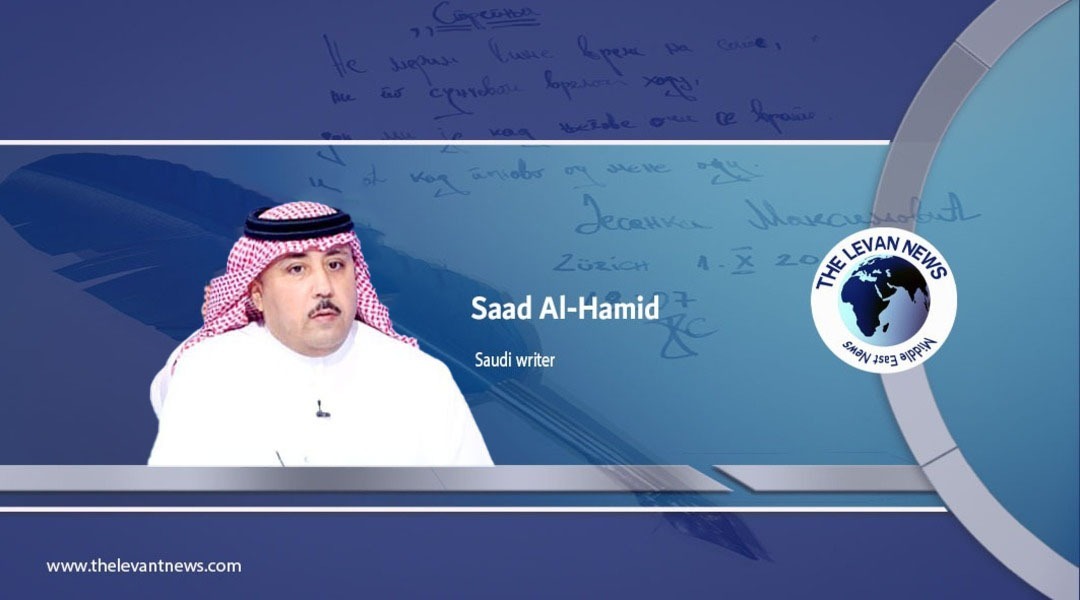-
When Biden decided to return to Riyadh

Saudi-American relations have always been strong and based on mutual respect and common interests since the establishment of the KSA in 1933.
In this regard, we have to remember the Quincy Pact between King Abdulaziz and US President Franklin Roosevelt, which was the starting stone for establishing the US-Saudi strategic relations and strong partnerships. Many wait for the outcomes of the US President's first visit to the ME (Middle East), especially since it comes in these hard times the world goes through. During this visit, a summit will be held between the GCC countries, Egypt, Iraq and Jordan. Several US sources and media outlets implied Washington wants to establish strategic security alliances and new partnerships with the region to confront the Iranian threat represented by Iran's nuclear programme & ballistic missile programme and discuss how to develop effective security and military strategies and agreements to confront Iran's militias in the region and to deter the growing Iranian threats.
The visit will discuss the consequences of the Russian-Ukrainian war and its repercussions on energy, food prices, the rise in fuel prices, the fight against terrorism and the security of waterways. The US President began his visit to Israel by giving reassurances to it about the future of the nuclear deal with Tehran and by talking about how to strengthen strategic alliances between the two countries & bilateral relations, and how to lay foundations for agreements that guarantee Israel's security against Iranian threats.
Some observers believe the USA wants to get Israel involved in a phased strategic alliance with the region's countries to confront the threats of Iran and wants to normalize relations between Riyadh and Israel, which is unlikely to happen because Riyadh's positions were very clear about the Palestinian cause and the importance of finding a solution to it based on the Arab Peace Initiative, the two-state solution and the establishment of a state for the Palestinians which its capital will be East Jerusalem. Many Saudi officials like Prince Faisal bin Farhan, stressed this.
Biden implied that now there are difficulties in finding radical solutions to the Palestinian cause because of the current political difficulties facing the Israeli government and its division because the opposition led by Netanyahu wants to topple it and make its MPs defect. Therefore, Biden did not give any promises other than wishes to achieve the desired peace between the Palestinians and Israelis, and he could not even discuss the calls to stop settlements, but rather focused on the Iranian file during his meeting with Israeli officials who share the same concerns of the region's countries about the Iranian nuclear threat. Perhaps Biden wants to correct the course of relations due to the urgent economic crises of inflation, high fuel prices inside the US and the decline of the president's popularity, according to the recent opinion polls of the American CMBC network, to 37% because of his internal policies and the shortage of energy supplies, because of the Russian-Ukrainian war, which began to threaten Europe with winter approaching because Russia cut off gas supplies to many of these countries and there are economic sanctions on its oil.
Consequently, the US sees the GCC states, with their huge capacities and a solid economic base, will have an important role to help reduce oil prices and provide alternative sources of energy for Europe in case the Russian-Ukrainian war continues. As well, the Biden administration has to reshape the policy it has pursued against its strategic ally, Riyadh, like the previous statements issued by Biden or his Democratic Party against the Kingdom's leadership, halting arms deal, withdrawing the Patriot batteries and the removal of the Houthis from the lists of terrorism, which encouraged them to explicitly violate international law repeatedly and target the Kingdom and its energy sources, waterways and vital & civil facilities.
The results of those political policies were very negative on the strength and durability of the bilateral relations, and I think what Mr Biden wants is to restore those relations with Riyadh and the GCC to restore the region's countries' & Israel's trust and give them bigger reassurances in case a nuclear deal with Tehran was made and to ensure that deal (in case it happened) will not be at the expense of the upcoming strategic security alliances and treaties that, from his point of view, correspond to the concerns of the countries of the region, and serve Washington's interests and its carefulness not to cause other conflicts between Israel and Tehran or the region's countries and Tehran because this will aggravate the current struggle between Washington, Russia and China for more political, economic and military influence and hegemony, whether in the South China Sea in the east or the Black Sea in the west or even in the world which is witnessing the birth of new poles.
This may also be reflected in energy and oil prices in a way that threatens Washington's interests, especially at this critical time in which the Biden administration still faces problems, and which has also cast a shadow over the upcoming US midterm elections. What is happening in the Russian-Ukrainian war now is one of the outcomes of that competition through which Russia succeeded in creating divisions in Europe and putting pressure on Washington and Europe as well. I and many observers think Russia and China succeeded to some extent in exploiting the Biden administration's weaknesses, the void left by Washington in the ME and consolidating its (US) partnerships effectively with the region's countries. Many observers believe Biden has to make concessions to the region's countries to make them trust the US administration again.

By Saad Abdullah al-Hamid
You May Also Like
Popular Posts
Caricature
BENEFIT Sponsors BuildHer...
- April 23, 2025
BENEFIT, the Kingdom’s innovator and leading company in Fintech and electronic financial transactions service, has sponsored the BuildHer CityHack 2025 Hackathon, a two-day event spearheaded by the College of Engineering and Technology at the Royal University for Women (RUW).
Aimed at secondary school students, the event brought together a distinguished group of academic professionals and technology experts to mentor and inspire young participants.
More than 100 high school students from across the Kingdom of Bahrain took part in the hackathon, which featured an intensive programme of training workshops and hands-on sessions. These activities were tailored to enhance participants’ critical thinking, collaborative problem-solving, and team-building capabilities, while also encouraging the development of practical and sustainable solutions to contemporary challenges using modern technological tools.
BENEFIT’s Chief Executive Mr. Abdulwahed AlJanahi, commented: “Our support for this educational hackathon reflects our long-term strategic vision to nurture the talents of emerging national youth and empower the next generation of accomplished female leaders in technology. By fostering creativity and innovation, we aim to contribute meaningfully to Bahrain’s comprehensive development goals and align with the aspirations outlined in the Kingdom’s Vision 2030—an ambition in which BENEFIT plays a central role.”
Professor Riyadh Yousif Hamzah, President of the Royal University for Women, commented: “This initiative reflects our commitment to advancing women in STEM fields. We're cultivating a generation of creative, solution-driven female leaders who will drive national development. Our partnership with BENEFIT exemplifies the powerful synergy between academia and private sector in supporting educational innovation.”
Hanan Abdulla Hasan, Senior Manager, PR & Communication at BENEFIT, said: “We are honoured to collaborate with RUW in supporting this remarkable technology-focused event. It highlights our commitment to social responsibility, and our ongoing efforts to enhance the digital and innovation capabilities of young Bahraini women and foster their ability to harness technological tools in the service of a smarter, more sustainable future.”
For his part, Dr. Humam ElAgha, Acting Dean of the College of Engineering and Technology at the University, said: “BuildHer CityHack 2025 embodies our hands-on approach to education. By tackling real-world problems through creative thinking and sustainable solutions, we're preparing women to thrive in the knowledge economy – a cornerstone of the University's vision.”
opinion
Report
ads
Newsletter
Subscribe to our mailing list to get the new updates!






















